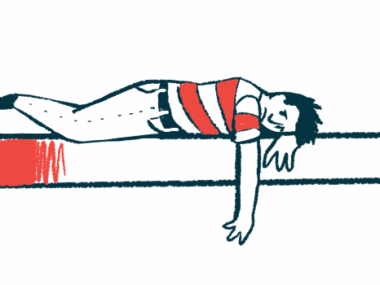Case report shows psychiatric symptoms can be first Cushing’s sign
Man's condition was associated with neuroendocrine tumor in lung
Written by |

The first symptoms of Cushing’s syndrome due to a neuroendocrine tumor in the right lung were severe psychiatric manifestations, including persecutory delusions, depression, and anxiety, for a man described in a recent case report from Tunisia.
The case highlights that “[Cushing’s syndrome] should be considered by clinicians in the presence of atypical disease presentation,” said researchers in “An Ectopic Cushing’s Syndrome with Severe Psychiatric Presentation: A Case Report,” which was published in Annals of Clinical Case Reports.
Cushing’s syndrome is an umbrella term for disorders wherein an excess amount of the hormone cortisol is in the body. The most common form of the syndrome, Cushing’s disease, is caused by a tumor in the pituitary gland, which releases adrenocorticotropic hormone (ACTH), a hormone that signals the adrenal glands atop the kidneys to produce cortisol. In rare cases, neuroendocrine tumors found outside the pituitary gland can also produce and release ACTH, leading to Cushing’s syndrome. A neuroendocrine tumor forms from cells that release hormones into the bloodstream in response to a signal from the nervous system.
While Cushing’s syndrome is frequently associated with psychiatric symptoms, these are rarely part of its first manifestations. Researchers in Tunisia described the case of a man who developed Cushing’s syndrome associated with an ACTH-producing neuroendocrine tumor in the right lung.
Psychiatric symptoms as rare first sign
The 36-year-old man went to the hospital due to high blood pressure (hypertension) and hypokalemia, or extremely low blood potassium levels. He had diabetes and in the past four months had had weight gain, fatigue, insomnia, and walking abnormalities.
A physical examination revealed a classical Cushing’s-like appearance, including a rounded moon face, fat accumulation between the shoulder blades, accompanied by striae, bruising, and progressive muscle weakness. He was also diagnosed with a common fungal skin infection, called tinea versicolor.
A psychiatric evaluation revealed emotional lability, depression, anxiety, and persecutory delusions. His blood pressure required four distinct medications to be controlled.
Blood tests showed he had severe hypokalemia, which led to alterations in his heart’s activity, as confirmed by an electrocardiogram. He received daily treatment with spironolactone (sold as Aldactone, among others) to prevent kidney failure. Fluconazole, used to treat fungal infections that can also lower cortisol levels, wasn’t sufficient alone to control his high cortisol.
Clinicians ordered a series of standard diagnostic tests for Cushing’s to confirm their suspicions. These included measuring early morning blood cortisol and ACTH levels, 24-hour urinary free cortisol (UFC) levels, and conducting high or low-dose dexamethasone suppression tests (DSTs).
His blood cortisol levels failed to drop after the DSTs and levels of chromogranin A, a protein released from hormone-producing cells, were also high. The findings led doctors to suspect Cushing’s caused by a neuroendocrine tumor.
A brain MRI showed no signs of a tumor in the pituitary gland, but a chest CT scan revealed the presence of a mass in the lower portion of the right lung, which lab tests suggested could be a potential neuroendocrine tumor. An abdominal CT scan showed his adrenal glands were enlarged.
The tumor was removed and a postoperative tissue analysis confirmed it was an ACTH-producing neuroendocrine tumor.
After surgery, the man’s blood potassium levels returned to normal and his blood pressure normalized, allowing the medications he was taking to manage high blood pressure to be discontinued. His blood ACTH and 24-hour UFC levels also became normal.
The man was placed on hydrocortisone replacement therapy. At his latest follow-up at four months after surgery, he was still free from disease recurrence. He continued treatment with metformin for diabetes and his psychiatric symptoms resolved, with the exception of depression.





